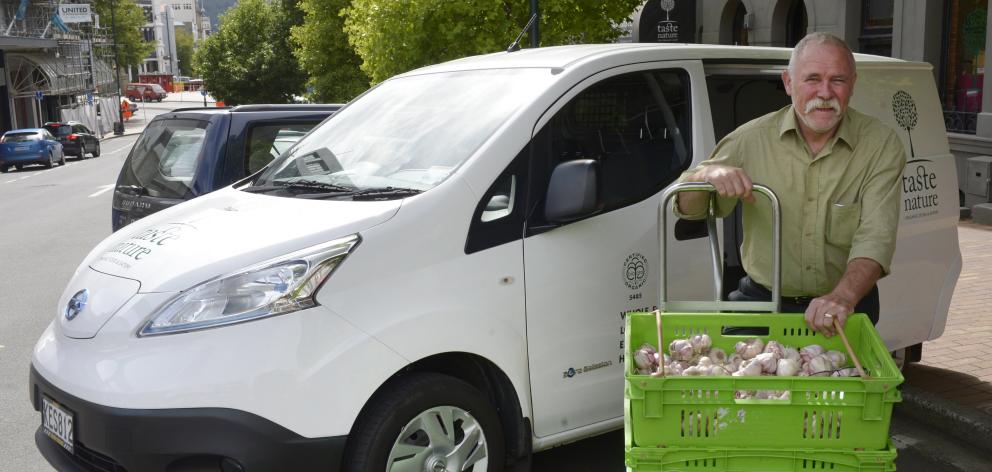
Mr Dickson and his wife and business partner, Rayna Dickson, had talked about an electric vehicle two years ago as part of an extension to their organic food business.
When the couple realised they needed a newer vehicle, the electric delivery van seemed a natural extension to the business, Mr Dickson said.
A month ago, he and Mrs Dickson bought a Nissan e-NV200 delivery vehicle, the same kind as grocery chain Foodstuffs and other businesses recently received government funding for in order to trial the vehicles.
However, the Dicksons paid $34,000 to buy their own vehicle because, after doing some research, they found it fitted their needs. It was the first new vehicle the couple had owned.
Mr Dickson’s only apprehension related to the size of the van, but it transpired it was built to take New Zealand-sized pallets and had handled well fully loaded. A full charge gave the Dicksons about 100km of travelling and that worked out to two trips from their Waitati home to their High St business and back plus deliveries around Dunedin, Mr Dickson said.
He believed the 150km quoted in a previous Otago Daily Times article was "a bit optimistic".
The van was either charged up at their home, which had photovoltaic cells installed, or at the Delta-Dunedin City Council fast-charging station.
The Dicksons had also changed their route into the city, driving over the Mt Cargill road instead of the motorway. Efficiencies could be gained by the way the vehicle was driven, and it was all emission free, he said.
With the use of an electric delivery van, Mr Dickson planned to expand the home delivery of produce. The cost savings on fuel by using the Nissan were estimated at between $4000 and $5000 annually.
"Being a small to medium-sized business, we can react faster. We saw an opportunity and moved quickly. To be honest, we feel a bit smug."
Mr and Mrs Dickson had owned Taste Nature for about eight years. Mr Dickson was formerly a chef but he became disillusioned with the type of produce he was using in restaurants and felt he needed a change.
When children came along, the family became more conscious about the type of future they wanted and started growing more of their own produce. Mr Dickson worked on a part-time basis in Taste Nature before realising he could make a living out of the business.
Although it was hard work, Mr Dickson said they made a "good honest living" from the business which employed 20 full and part-time staff.
The Dicksons have an organic garden at their home and employ a gardener to keep the cafe supplied with greens, fresh herbs and some root vegetables. Each Wednesday, a group of volunteers help with the garden harvest.
Organic food was brought in from South Island suppliers.
Business growth was slow but Taste Nature had a steady number of regular customers. The business specialises in bulk foods and encourages customers to bring their own containers or bags. But if a customer bought and used a Taste Nature jar, they received a $1 refund when it was returned clean, Mr Dickson said.
The focus was on the business ethic of "reduce, reuse and refund".











